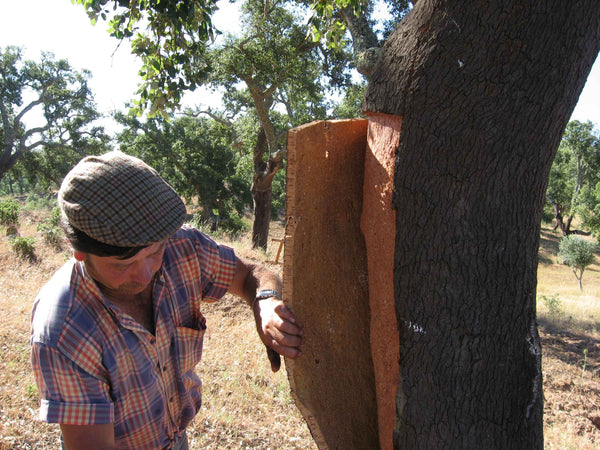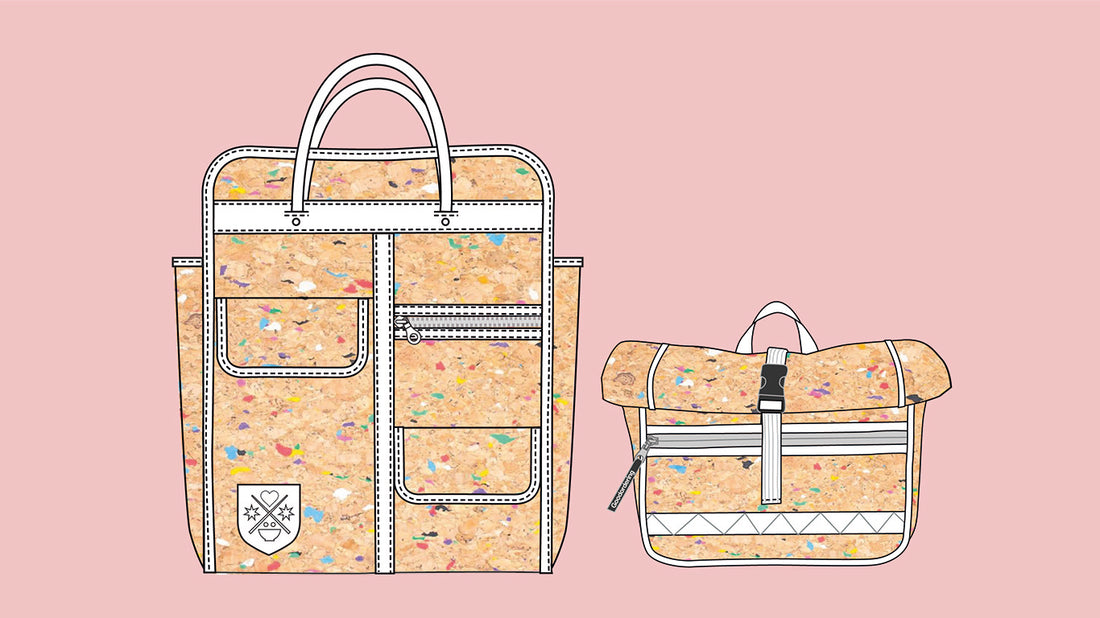Cork is one of nature’s most versatile materials and has a wide range of applications from the corks in your wine bottles to flooring panels that can insulate your home. Cork’s versatility comes from its unique structure. Cork consists of a honeycomb of microscopic cells filled with an air-like gas, which gives it a range of interesting qualities, such as being a great thermal and acoustic insulator.

Cork is also a fully sustainable and environmentally friendly resource, thanks to the unique nature of its gathering. In fact, cork is one of the greenest alternatives out there and is 100% natural, renewable and recyclable.


Cork comes from the bark of the cork oak tree, known as Quercus suber L. Unlike other wood products, cork is harvested from the cork tree and doesn’t result in the tree being cut down. This makes the harvesting process is entirely sustainable and doesn’t harm the cork oak tree at all.

Most cork trees grow in the western Mediterranean, where the climate is ideal. Cork trees require a lot of sunshine, high humidity and low rainfall to grow well.
Portugal is the world’s main exporter of cork, however, other countries like Spain, Algeria, France, Tunisia and Morocco also grow and export cork.
This renewable process ensures minimal environmental impact, making cork one of the most sustainable materials available. Additionally, cork possesses a unique combination of properties that make it suitable for a wide range of applications.
-
Wine Stoppers: Cork is an ideal material for wine stoppers due to its elasticity and impermeability. Its natural elasticity allows it to compress and form a tight seal, preventing air from entering the bottle and preserving the wine's flavor and aroma. Furthermore, cork's impermeability to liquids and gases ensures that no unwanted contaminants affect the wine's quality over time.
-
Flooring: Cork flooring is highly resilient and provides excellent thermal and acoustic insulation properties. Its cellular structure traps air, resulting in a material that is both comfortable underfoot and energy-efficient. Additionally, cork is naturally resistant to mold, mildew, and insects, making it a durable and low-maintenance flooring option.
-
Handbags and Accessories: Cork's durability and lightweight nature make it an ideal material for handbags and accessories. Despite being lightweight, cork is incredibly strong and resistant to abrasions, ensuring that products made from cork are long-lasting. Additionally, cork's natural texture and aesthetic appeal contribute to the unique and fashionable design of handbags and accessories.

-
Bulletin Boards: Cork's soft and porous texture makes it an excellent material for bulletin boards. Its porous surface allows for easy insertion and removal of pins, making it an ideal medium for displaying notes, photographs, and other items. Additionally, cork's natural sound-absorbing properties help reduce noise levels in indoor environments, making it suitable for use in offices and classrooms.
-
Yoga Blocks: Cork's firm yet lightweight properties make it an excellent material for yoga blocks. Its firmness provides stability and support during yoga poses, while its lightweight nature ensures easy transportability. Furthermore, cork's natural grip and texture prevent slipping, allowing practitioners to maintain proper alignment and posture during their practice.
-
Wall Tiles: Cork wall tiles offer both aesthetic and functional benefits. Cork's natural insulating properties help regulate room temperature and reduce energy consumption by minimizing heat transfer. Additionally, cork's soft texture provides a comfortable and sound-absorbing surface, making it suitable for use in residential and commercial spaces alike. Its versatility allows for various design possibilities, enhancing the visual appeal of interior spaces.
- More innvoative products made from cork include this bicycle saddle below from Frame Cycles.





